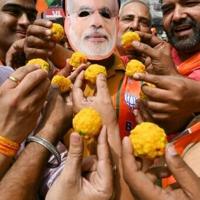India’s Prime Minister Narendra Modi is scheduled to be inaugurated for a third term on Sunday following election results that did not meet expectations, forcing him to rely on coalition partners to govern.
With Modi yet to announce his cabinet lineup, the ceremony at the presidential palace on Sunday evening (13:45 GMT) will be closely watched as around 30 ministers-to-be will also take the oath of office.
Modi’s BJP party ruled outright for the past decade but did not secure the same landslide victories as before, leading to negotiations with the National Democratic Alliance (NDA) coalition to ensure parliamentary numbers for governing.
Larger coalition parties have demanded significant concessions in exchange for their support.
Reports suggest that the Telgu Desam Party (TDP) has secured four cabinet positions, while the Janata Dal (United) has negotiated for two.
The previous cabinet had 81 ministers, and it is expected that key ministries like home, defence, finance, and external affairs will remain with the BJP.
Analysts believe that the coalition government will lead to a more conciliatory approach from the BJP.
Rahul Gandhi, Modi’s chief rival, was nominated by the opposition party on Saturday to lead in parliament following the Congress party’s improved performance in the elections.
If elected, Gandhi will be recognized as India’s official opposition leader when the new parliament convenes.
Parliamentary regulations require the opposition leader to come from a party with at least 10% of the lawmakers in the lower house.
The post of official opposition leader has been vacant for 10 years due to Congress’s previous election results not meeting the threshold.
pzb-pjm/sn





